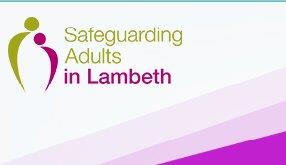Dementia Action Week
This week the Lambeth Safeguarding Adults Board (LSAB) invites you to observe Dementia Action Week, whose theme this year is on Diagnosis. Over 500,000 people in the UK have been diagnosed with dementia, but equally over 400,000 are believed not have been. The vast majority of persons who had delayed their diagnosis for two or more years wished they had done it sooner. Research by the Alzheimer’s Society showed the biggest barrier to diagnosis is the false belief that memory loss is simply part of old age.
Diagnoses are at a five year low with an estimated 33,000 people living without diagnosis, according to the Alzheimer’s Society, due to the backlog created by the pandemic. This prevents them from receiving the care they need and puts a greater pressure on those around them.
LSAB would like to emphasise awareness of the early signs of dementia which are not limited to:
- Memory Issues
- Language and Communication Issues
- Mood and Behavioural Changes
- Disorientation
- Problems with Perception
- Confusion and associated difficulty with decision-making
Dementia and Adult Safeguarding
People with dementia will have cognitive symptoms that may make them more at risk of abuse or neglect.
An early diagnosis can avoid stresses for both the person affected and those around them, allowing for proper planning to take place. This is of particular pertinence to Adult Safeguarding, as appointing a Lasting Power of Attorney or creating an advance care plan before a person loses capacity can support others to act in the persons best interests and help prevent abuse or neglect in the future.
It is also recognised that the use of restraint by carers is sometimes required in order to protect those with Dementia. In some instances this is the right thing to do. There are however occasions where despite best intentions, the use of restraints can cause harm. This is a difficult area for which we have created a guide to support carers. Carers may also be at risk of neglect and abuse especially if they are overburdened, isolated, lonely or experiencing severe stress; the key thing to remember is that you can always seek support.
If you believe yourself or someone else could be suffering from Dementia, or that a carer is finding a situation difficult, know that help and support is available. An early diagnosis is the best possible outcome. Act!
For more local resources and support services, please visit Lambeth Council’s website.




